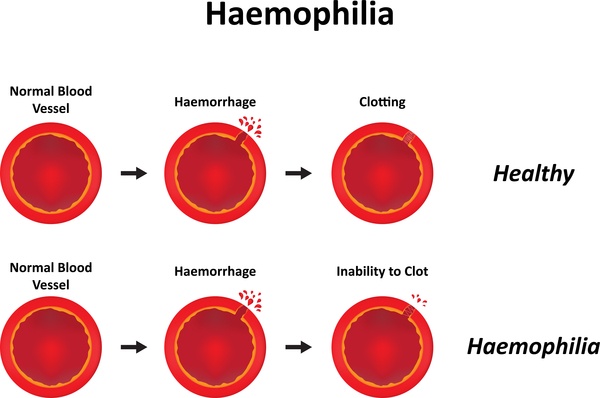Hemophilia Disease Overview:
Hemophilia Disease is a rare genetic disorder that affects the blood's ability to clot. People with hemophilia often experience prolonged bleeding, both internally and externally, which can lead to serious health complications. This article provides a thorough examination of hemophilia, covering key aspects such as diagnostic analysis, treatment options, the regulatory framework, competitive landscape, market trends, and clinical trial assessments.
The Market Competitors Listed Below are Revolutionizing Healthcare with Innovative Inventions:
Factor Replacement Therapy
- Bayer
- Baxalta
- Novo Nordisk
- Emergent BioSolutions
- Catalyst Biosciences
- OPKO Health
Non-Factor Replacement Therapy
- Pfizer
- Spark Therapeutics
- Biogen
- Chameleon Biosciences
- Asklepios BioPharmaceutical
- uniQure
Gene Therapy
- CSL Behring
- BioMarin Pharmaceutical
- Alnylam Pharmaceuticals
- Dimension Therapeutics
- GeneVentiv
- Sanofi
Hemophilia Diagnostic Analysis:
Accurate and timely diagnosis of hemophilia is crucial for effective management. The diagnostic process involves assessing the patient's medical history, conducting physical examinations, and performing specific blood tests to measure clotting factor levels. Hemophilia is classified into three main types—hemophilia A, B, and C—each associated with deficiencies in clotting factors VIII, IX, and XI, respectively.
Advanced diagnostic technologies, including genetic testing, play a pivotal role in identifying the specific genetic mutations responsible for hemophilia. Early diagnosis enables healthcare professionals to tailor treatment plans and improve patients' overall quality of life.
Hemophilia Treatment Analysis:
The primary goal of hemophilia treatment is to prevent and control bleeding episodes. This is typically achieved through the administration of clotting factor concentrates, either derived from human plasma or produced through recombinant DNA technology. Prophylactic treatment, where clotting factors are administered regularly to prevent bleeding, has become a standard practice, leading to a significant improvement in the lives of individuals with hemophilia.
In addition to traditional factor replacement therapy, gene therapy has emerged as a promising avenue for hemophilia treatment. Gene therapy aims to correct the underlying genetic mutations responsible for the disorder, potentially offering a long-term solution with fewer treatment administrations.
Regulatory Framework for Hemophilia:
Regulatory agencies worldwide play a critical role in ensuring the safety and efficacy of hemophilia treatments. Stringent approval processes, such as those conducted by the U.S. Food and Drug Administration (FDA) and the European Medicines Agency (EMA), are in place to evaluate new therapies before they reach the market. The regulatory framework is designed to safeguard patient well-being and uphold the highest standards of medical care.
Browse More Information:
https://www.diseaselandscape.com/genetic/hemophilia-disease-regulatory-insights
Competitive Analysis:
The field of hemophilia treatment has witnessed a dynamic shift with the introduction of novel therapies and advancements. Established pharmaceutical companies and biotech firms are engaged in a competitive landscape, striving to develop more effective and convenient treatment options. Competition has driven innovation, resulting in improvements in factor replacement products, extended half-life therapies, and breakthroughs in gene therapy.
Market Trends:
The hemophilia treatment market has experienced significant growth, driven by increased awareness, improved diagnosis, and advancements in therapeutic options. Factors such as the availability of extended half-life products, the advent of gene therapies, and a focus on personalized medicine have shaped current market trends. The market is also witnessing strategic collaborations between pharmaceutical companies and research institutions, aiming to accelerate the development of next-generation hemophilia treatments.
Clinical Trial Assessment:
Ongoing clinical trials are a testament to the continuous efforts to enhance hemophilia treatment options. Trials explore novel therapeutic approaches, including gene therapies, non-factor replacement treatments, and alternative delivery methods. These trials contribute valuable data to the scientific community, informing the development of future treatments and expanding our understanding of hemophilia.
Conclusion:
The landscape of hemophilia diagnosis and treatment has evolved significantly, offering hope to individuals living with this rare genetic disorder. Advances in diagnostic technologies, a robust regulatory framework, a competitive market fostering innovation, emerging market trends, and ongoing clinical trials collectively contribute to the progress in hemophilia care. As research and development continue, the outlook for individuals with hemophilia is increasingly optimistic, promising a future with more effective, personalized, and accessible treatment options.
Browse through more Genetic Diseases Insights LLP Research Reports.
Related Reports:
Fanning the Flames Within: Navigating the Complex World of Pancreatitis Disease
Appendicitis Disease Unveiled: Understanding the Ache of the Appendix
Unveiling the Tiny Culprit: Demodex Blepharitis - A Closer Look at an Ocular Infestation
Battling the Breath of Life: A Deep Dive into Cystic Fibrosis.


No comments yet